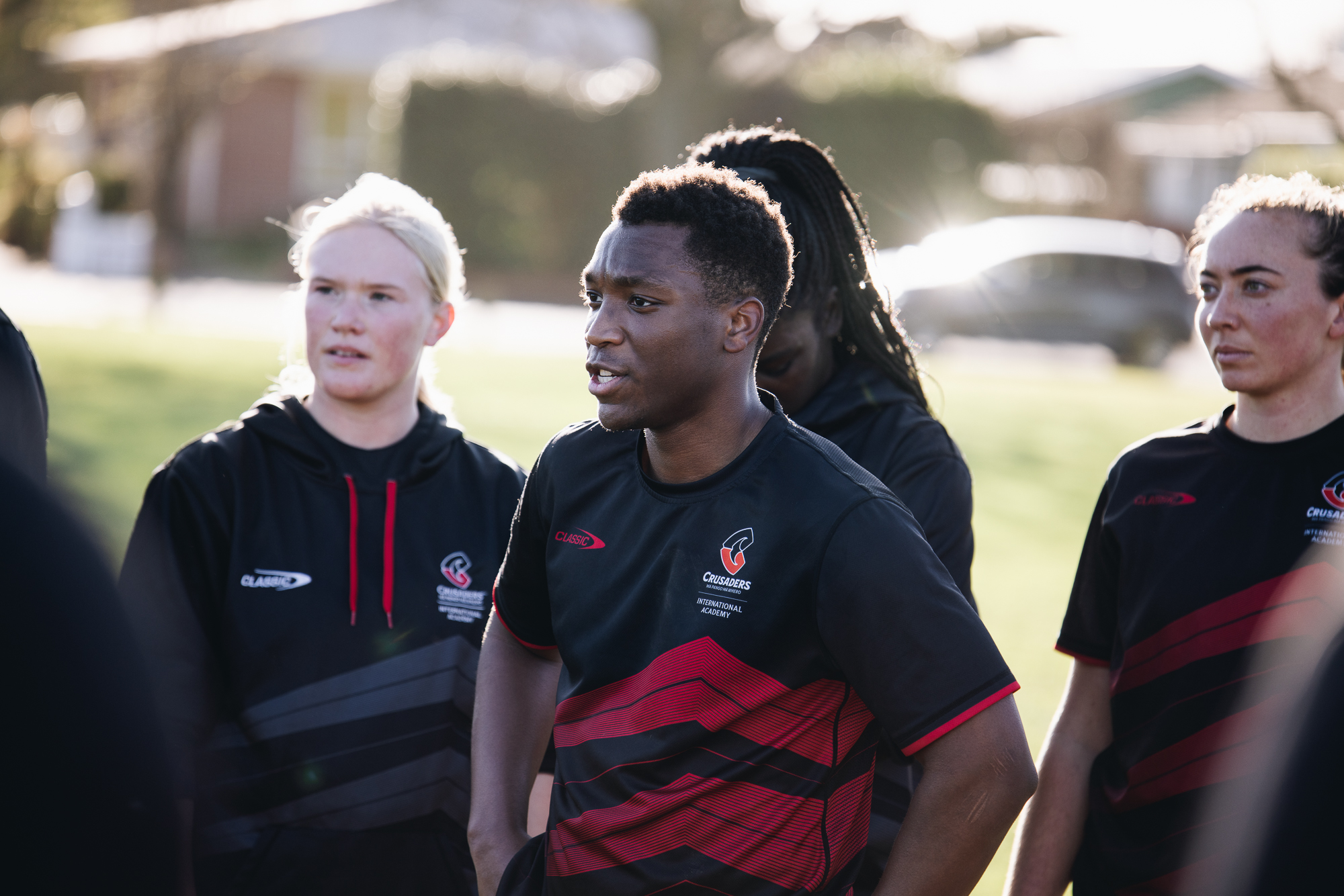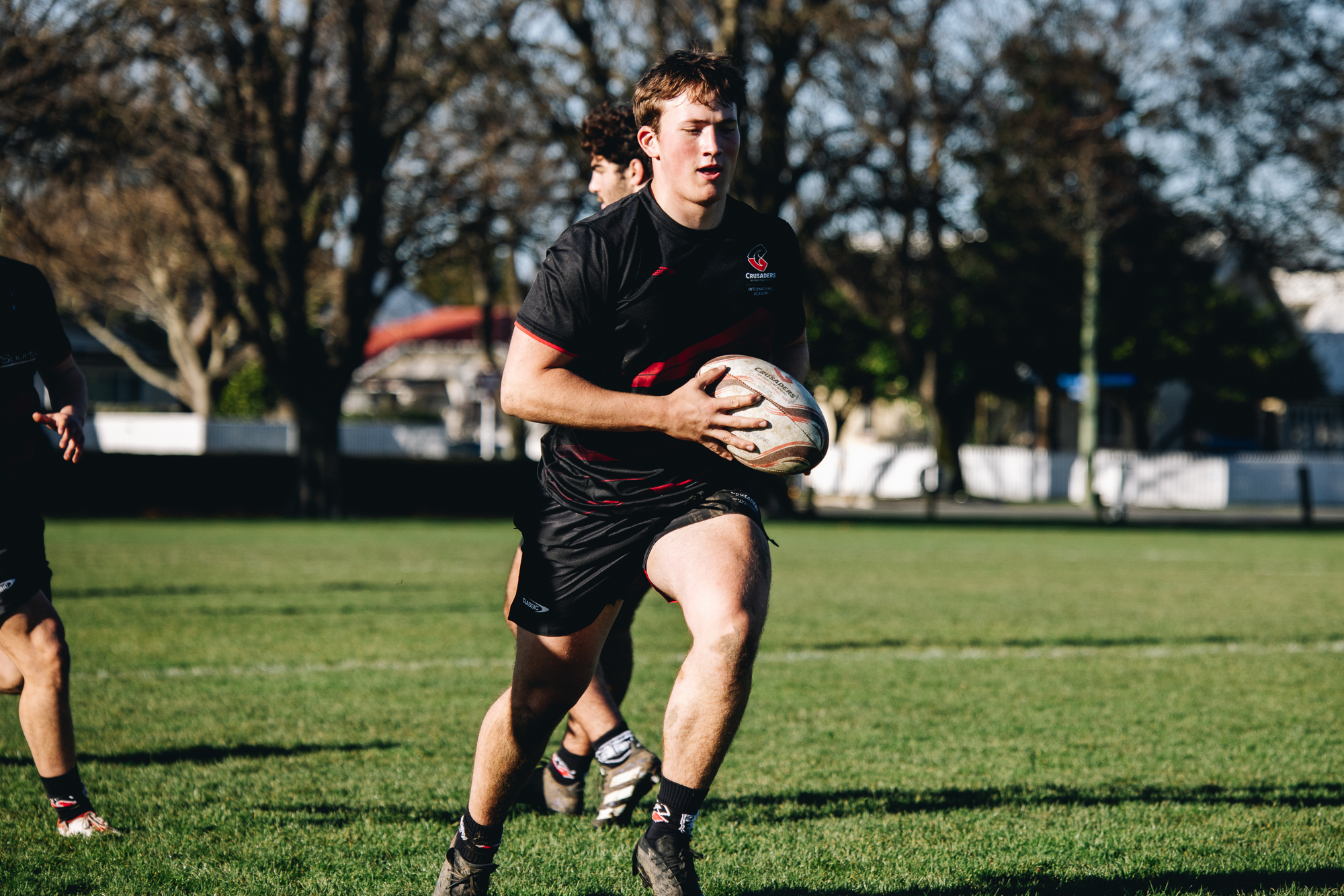Harvard freshmen on personal growth at Crusaders International Academy
When looking for a future in international rugby, there’s one place that stands above the rest for learning on-field skills and off-field culture.
At least that’s the opinion of Harvard freshmen Tinaye Ngorima and Eamonn Lay, two 18-year-old members of the current Crusaders International Academy intake.

Tinaye Ngorima of Harvard University Rugby
Both students arrived in Christchurch in June for an eight-week full immersion in the Crusaders environment, to look under the hood of the multi-championship winners.
They both grew up in Toronto, Canada, and play for Harvard Rugby football Club – Ngorima as centre and Lay as hooker. The team competes in National Collegiate Rugby, Division 1 A.
“For me coming to the Crusaders International Academy, it was a lot of the same reasons I wanted to go to Harvard,” said Ngorima, currently studying Economics and Computer Science at the Ivy League college in the United States.
“When I think about where I want to be in terms of rugby, being at the Crusaders Academy allowed me to surround myself with some of the better players in the world, best coaching and then the programme itself – it really combines a lot of the aspects that go into being great, on the field, off the field, and that complete development not only as a rugby player but as a person as well.”
It was a similar story for Lay, studying Economics and Applied Math.

Eamonn Lay of Harvard University Rugby
“You know, it’s not the easiest thing to do, ship off to the other side of the world, away from your family after already having been away from them for the year,” Lay said, crediting the Crusaders International Academy as “a massive growth opportunity”.
“Going into this winning successful culture, I knew there were so many lessons I could take home from on the rugby field, but honestly primarily outside of the rugby field and in life.”
Lay said the main takeaway for him so far was “the importance of culture and how to build it”.
“Being here, I feel you’re really able to join a culture and become a part of it and experience it, I think that’s the first step, learning how it was formed and the really deliberate process,” he said.
“That’s something we’re really trying to do back home with Harvard rugby, so being able to see that leadership and for me to maybe step into that leadership role to help bring that forth has been really special.”
